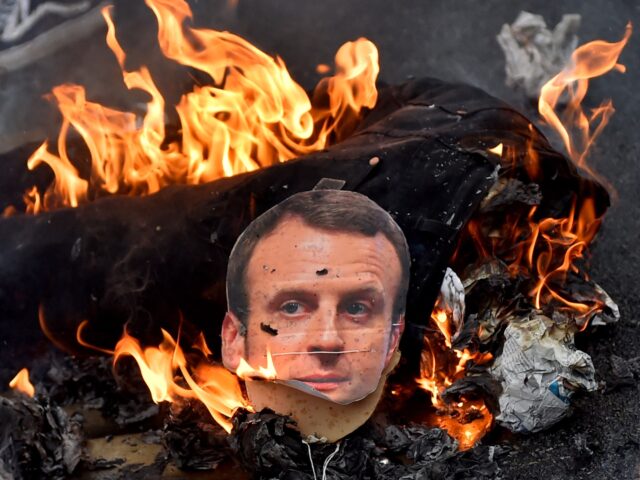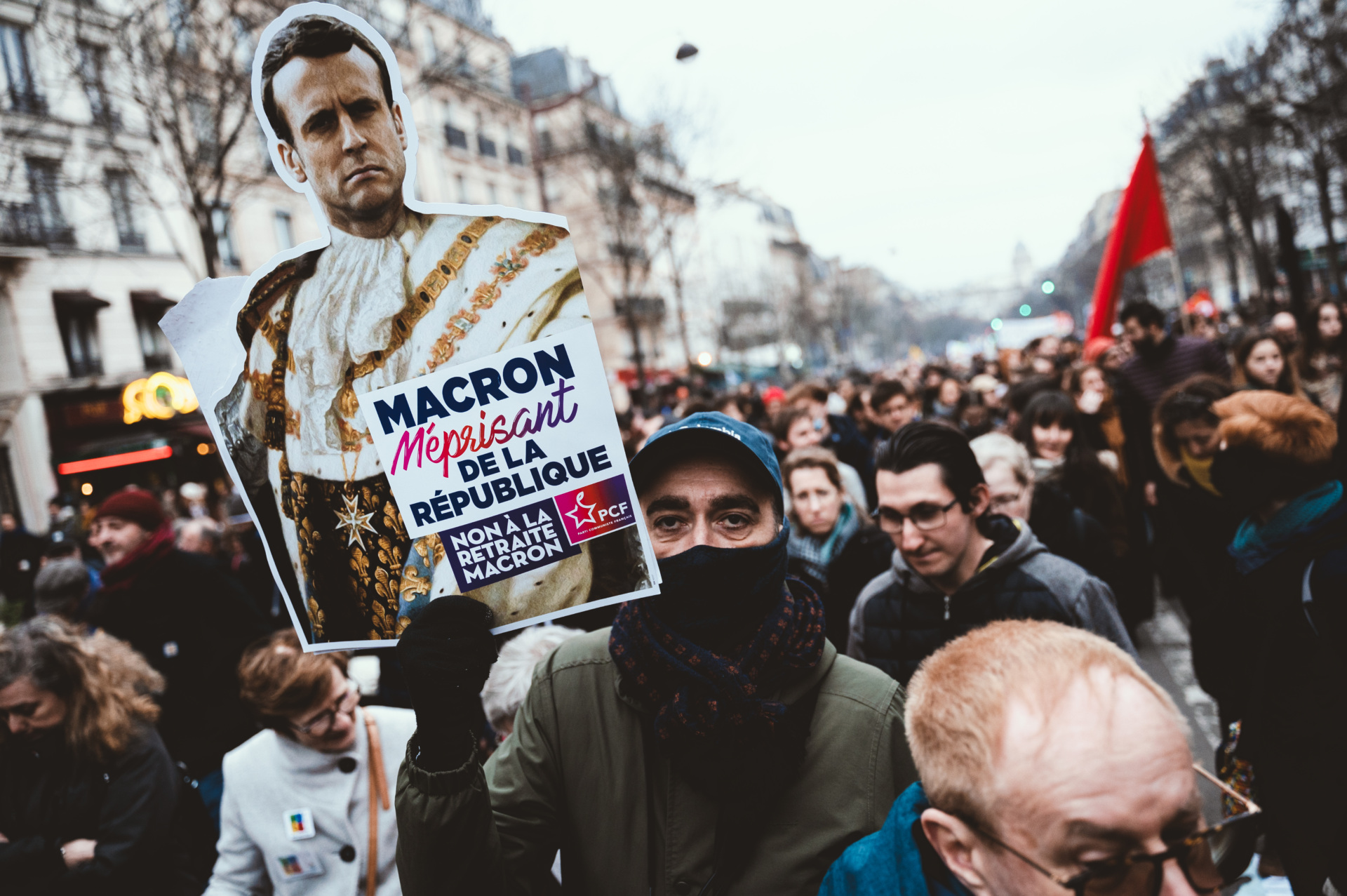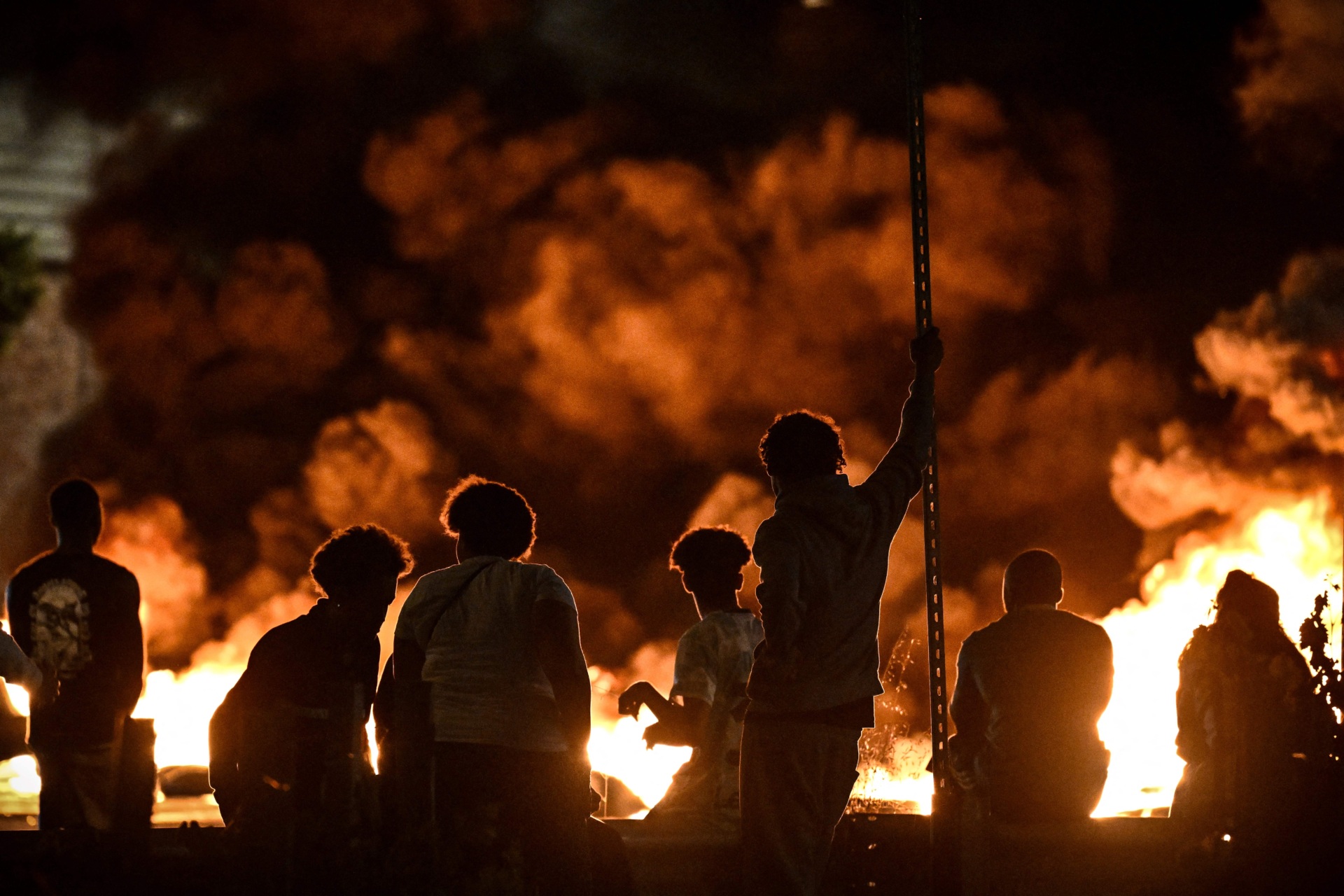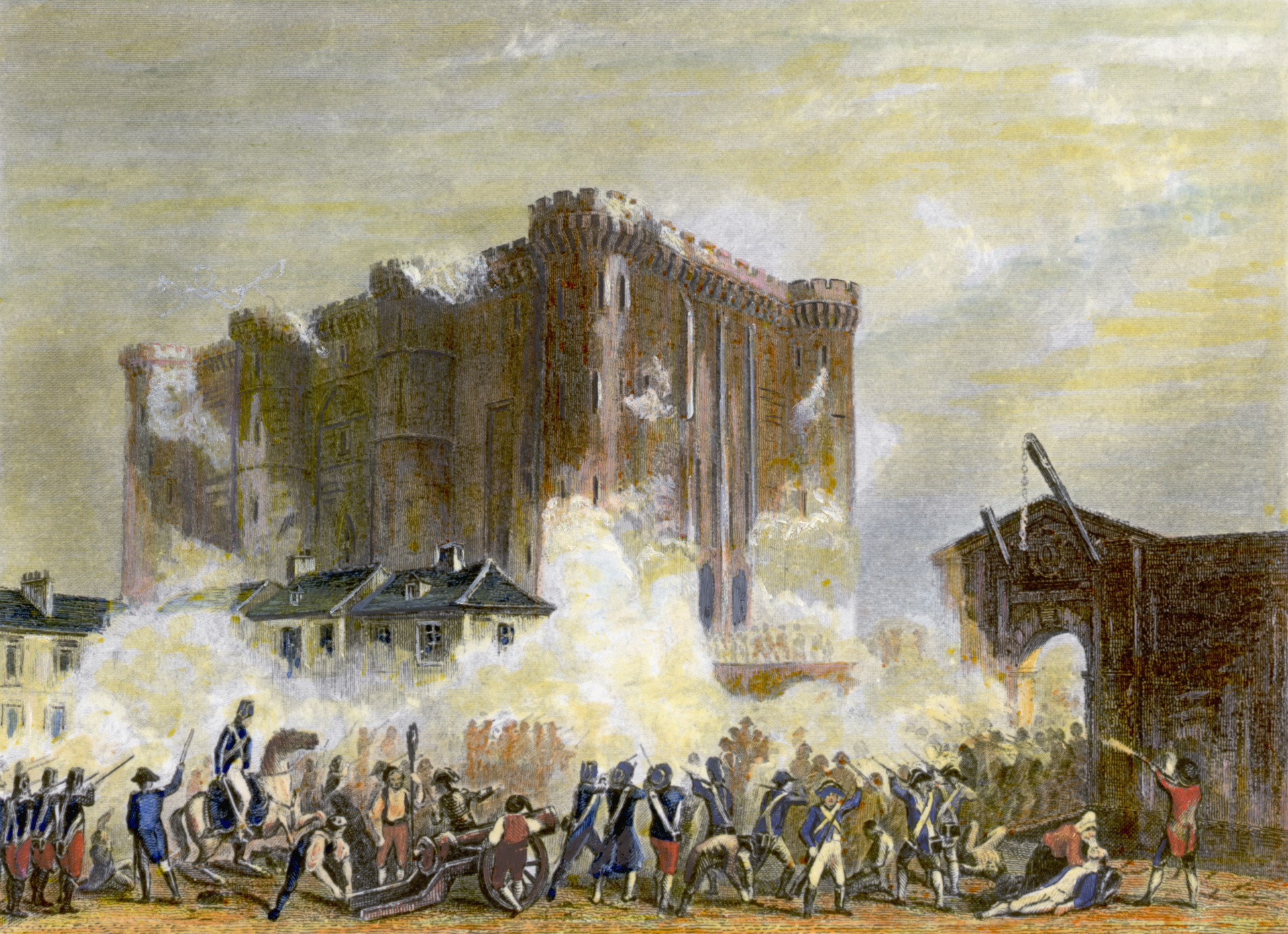Exactly 234 years ago today, 954 merchants, artisans, and other members of the “Third Estate” stormed and seized control of a prison in the centre of Paris, the Bastille. The prison, which also functioned as an armoury and fortress, served in 1789 as a major symbol of power for the Ancien Régime and the Monarchy before it came crashing down.
Upon first hearing of the Storming of the Bastille, King Louis XVI asked simply: “Is it a revolt?”
“No sire,” replied the Duc de La Rochefoucauld. “It’s not a revolt, it’s a Revolution.”
Less than four years later King Louis and his wife Marie Antionette had their heads cut off by radicals with Madame La Guillotine in the Place de la Révolution, precipitating one of the most notorious and bloody series of political purges in history known as the Reign of Terror.
Jupiter Descending
The Divine Right of Kings may have died with the revolution in France, yet visions of grandeur are most certainly still alive and well among the political elites of the country. Ascending to the Élysée Palace in 2017, President Emmanuel Macron expressed his intentions to embody a “Jupitarian” ideal. “A remote, dignified figure, like the Roman god of gods, who weighs his rare pronouncements carefully,” the ex-Rothschild banker declared at the time.
Perhaps Macron’s most significant pronouncement to date was a pledge he made to the French public in April, vowing that within 100 days he would restore faith in his government and bring order to the streets. The promise came amid months of fiery protests and riots that erupted in response to a rise in the pension age imposed upon the country without a vote in the National Assembly. The undemocratic move was widely seen as a slap in the face of the working class — which in revolutionary France would have been known as the Third Estate — who were already suffering under a cost of living crisis and rampant inflation after years of lockdowns that enriched the elites while impoverishing the rest of the country.
Ultimately, the union-led protests did subside. However, as one fire was put out an even larger one was lit after a 17-year-old Algerian-heritage teenager, Nahel Merzouk, was shot and killed by a police officer after fleeing from a traffic stop in the multicultural outskirts of Paris on June 27th.
Macron Begs French Public for 100 Days to Solve National Crisis as Fiery Riots Continue https://t.co/jqez39WsEQ
— Breitbart London (@BreitbartLondon) April 18, 2023
The killing quickly reverberated throughout migrant communities and sparked some of the most destructive riots in memory, with over 1,000 buildings set on fire, 5,600 vehicles destroyed, and over 3,300 people arrested in just a six-day period and dashing any hopes of Macron being able to fulfil his 100-day pledge, the end of which happens to fall on Bastille Day or “La Fête Nationale” as the national holiday is known in France.
Speaking to Breitbart London, Rassemblement National (National Rally) Member of European Parliament, Patricia Chagnon-Clevers said: “Not only did Macron not succeed in restoring order and trust, under his watch, France experienced the worst ever riots.
“The whole world has witnessed rioting, looting, and violence by hordes of young people, mainly from immigrant families, with a savagery that was thought to have disappeared from the European continent.”
“After days of looting, order was finally restored, not by Macron, but by the drug cartels whose business was suffering from the civil war-like situation,” the MEP said.
The huge extent of damage and vandalism caused in nearly a week of nightly riots in France has been dramatically underlined with a summary of recorded burnings so far, with the toll running to thousands of vehicles and buildings. https://t.co/KUjB5U3D1f
— Breitbart News (@BreitbartNews) July 3, 2023
The vast majority of the French people also believe that the president failed to fulfil his 100-day pledge, with 78 per cent of those polled in a survey from Odoxa-Backbone Consulting conducted for the Le Figaro newspaper saying they did not believe Macron followed through on his promises.
While the globalist president had vowed to address the nation at the end of the 100-day period to give an update on his government’s progress, he chose not to give a speech on Bastille Day, saying on Wednesday: “I said that I will make a point around July 14, I reassure you, I will make a point around July 14. But I gave you neither the date nor the form, and I will give them in due time.”
In addition to Macron hiding away from the traditional duty of delivering a speech on the national holiday, towns across France — many still dealing with the aftermath and damage of the riots — have cancelled celebrations to honour the flashpoint of the Revolution. “We don’t really feel like having a party,” said Montargis Mayor Benoît Digeon, “We’re still getting the town back on its feet.”
The federal government, under the assumption that unrest will once again break out around Bastille Day, also enacted a ban on the sale of fireworks to citizens, given that they are often used as projectile weapons by rioters.
In preparation for a return of “urban violence”, the state also mobilised an “exceptional deployment” of 130,000 police officers, gendarmes and firefighters for the 14th, with some 45,000 police to be specifically deployed at night to combat rioters.
Colour Blind
France, uniquely among most Western nations, adopted an official policy of “colour blindness” following the horrors of the Second World War. The policy means that, unlike countries that try to rectify the sins of the past with “race-conscious” programmes such as Affirmative Action in the United States, France does no such thing. It also means, however, that under the guise of ‘French Universalism’ the government does not consider race or immigration background on the census.
This has enabled establishment political figures to try to downplay the role that ethnicity and mass migration played in the riots that followed the death of the teenager, who hailed from the former French colony of Algeria. Interior Minister Gérald Darmanin risibly claimed that there were many “Kevins and Mattéos” among the arrested rioters. Former President François Hollande, meanwhile, tried to blame the racially inspired riots on the impacts of coronavirus lockdowns.
The French public was not convinced, however, with a survey finding that 59 per cent believe that the riots were “the consequence of the failures of our migration policy”. Even more, 71 per cent, said that immigration should be reduced in the wake of the violence.
Majority of French Blame Riots on Mass Migration as Establishment Attempts to Downplay Impacthttps://t.co/gOw8se4Mln
— Breitbart London (@BreitbartLondon) July 9, 2023
French MEP Patricia Chagnon-Clevers told Breitbart: “France has been put to the sword by thugs who no longer confine themselves to imposing their laws in their neighbourhoods, but who come in hordes to attack OUR police, our prisons, and to loot and burn at the very heart of our cities. Even in the heart of Paris.
“The French now know that savagery is back in our country.”
“In reality,” she added, “the state has long since ceased to exist in many parts of our country, which has been infected by mass immigration, where women wear veils and radical imams preach hatred of the West, where gangs thrive on drug trafficking and young kids earn hundreds of euros a week working for drug gangs and where successive governments over the past 40 years have allowed a counter-society to take root, one that is half-religious and half-criminal.”
The National Rally politician, who was elected to the European Parliament last year, said that to restore law and order in all of the regions of France, a multipronged approach is necessary, but that “first and foremost” the government needs to “halt all immigration” to the country.
Under Siege
As was the case for the governor of the Bastille prison 234 years ago, the Macron government is — at least metaphorically — under siege. The fate of the prison governor, Bernard René Jourdan de Launay, was to be dragged from his post, stabbed with the knives, swords, and bayonets of the revolutionaries before having his decapitated head put up on a spike, paraded through the streets of Paris and thrown into the River Seine.
While such violence against the political class is hopefully not on the cards, it nevertheless remains to be seen what the fates have in store for Macron and his struggling government. Government mismanagement has resulted in soaring state debt and rampant inflation that has only exacerbated the divide between the Third Estate and the wealthy elites like the president himself.
The political turmoil in France has become so dire during the Macron ‘Jupitarean’ presidency that two-thirds of the public is now in favour of another ‘revolution’ and the formation of a new Republic.
Flaming Car ‘Assassination’ Attempt on French Mayor Sees Wife and Child Injured as They Fled From Violent Mobhttps://t.co/xkbPhpd562
— Breitbart London (@BreitbartLondon) July 2, 2023
At just 65 years old, the Fifth Republic is the second-longest democratic government to reign over France since the overthrow of the Bourbon Monarchy of King Louis XVI in 1792. Now, some 67 per cent of the public say that they would be in favour of ushering in a new Sixth Republic based upon a system of proportional representation that would likely benefit populist parties such as the National Rally of Marine Le Pen and the hard left over globalist centrist figures such as Macron.
Sensing the revolutionary fervour that is once again brewing in his country, President Macron has sought to adopt the tactics of tyrants, pushing for the government to be empowered to “cut off” social media networks during periods of unrest. This has led to widespread condemnation, with some political figures comparing the president to communist dictators in China and North Korea.
Perhaps the president should mark the lessons of history, listen to the calls of the people to reduce inequality and mass immigration, and heed the warnings of the verses of the national anthem, La Marseillaise, as it is sung throughout France, celebrating the fall of the Bastille.
Tremble, tyrants and you traitors, the shame of all parties,
Tremble! Your parricidal schemes
Will finally receive their prize!
Everyone is a soldier to combat you,
If they fall, our young heroes,
Will be produced anew from the ground,
Ready to fight against you!




COMMENTS
Please let us know if you're having issues with commenting.